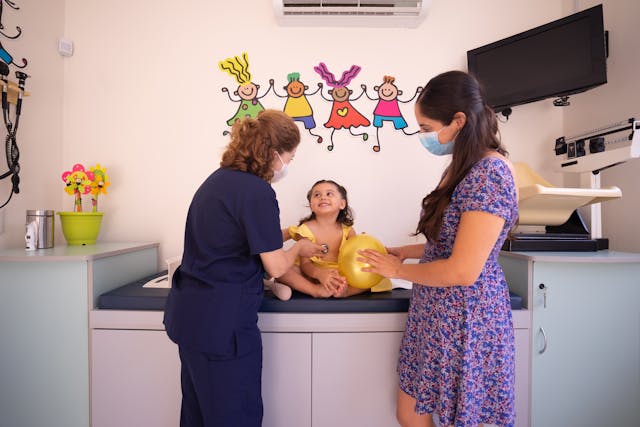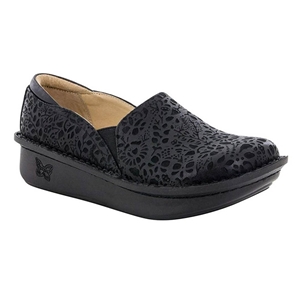Nursing Specializations
Nursing includes many specializations, each addressing specific healthcare needs. These roles allow nurses to focus on areas that align with their skills, interests, and patient care priorities.
Specializations also provide opportunities to develop expertise and take on roles with varying levels of responsibility.
Choosing a Nursing Specialization
Choosing a nursing specialization impacts daily responsibilities, career development, and job satisfaction. A well-suited specialization matches a nurse’s abilities, interests, and long-term goals.

This alignment creates opportunities for personal growth and professional success, while also fostering a deeper connection to the work. Nurses who find a specialization they enjoy are more likely to feel motivated and fulfilled in their careers.
Common Nursing Specializations
Nursing roles span diverse fields to meet different patient and healthcare needs. Common specializations include:
- Medical-Surgical Nursing: Providing care for adult patients recovering from surgery or managing medical conditions in hospitals or clinics.
- Pediatric Nursing: Focusing on the health and development of children, from infants to adolescents, in a variety of settings.
- Obstetric Nursing: Supporting women through pregnancy, childbirth, and postpartum care, while addressing related reproductive health needs.
- Psychiatric Nursing: Specializing in mental health care by assessing, treating, and supporting patients with psychological conditions.
Advanced roles offer further specialization and responsibilities, including:
- Nurse Practitioner: Delivering primary or specialized care, often independently or in collaboration with physicians.
- Nurse Anesthetist: Administering anesthesia and managing patient care before, during, and after surgical procedures.
- Clinical Nurse Specialist: Acting as an expert in a specific healthcare area, guiding treatment plans, and improving care practices within teams.
These specializations allow nurses to contribute effectively to patient care and grow professionally within focused healthcare areas.
Niche Specializations in Nursing
Nursing offers specialized roles beyond conventional fields, allowing nurses to explore unique career paths that combine healthcare with other disciplines.

These niche areas often address specific patient needs or environments requiring specialized knowledge and skills.
- Forensic Nursing: Blends healthcare and legal knowledge to care for victims of violence, collect evidence, and support investigations. Forensic nurses often work closely with law enforcement and legal teams, providing critical expertise in cases involving trauma or abuse.
- Informatics Nursing: Focuses on healthcare technology, managing electronic health records, and analyzing data to improve patient care and streamline healthcare systems. Informatics nurses act as liaisons between clinical staff and IT departments.
- Flight Nursing: Provides emergency care during aeromedical transport for critically ill or injured patients. Flight nurses operate in high-pressure environments, ensuring patients remain stable during rapid transport to medical facilities.
- Pain Management Nursing: Addresses acute and chronic pain conditions, working with patients to develop effective pain relief strategies. These nurses often collaborate with interdisciplinary teams to improve quality of life for patients managing persistent pain.
Niche specializations expand career possibilities, enabling nurses to apply their expertise in focused, impactful ways while meeting diverse patient and industry needs.
Specializations in High Demand
Specializations in high demand reflect the changing priorities of healthcare systems. Geriatric nursing focuses on meeting the specific needs of older adults, including managing chronic conditions and promoting quality of life.

Critical care nursing plays a vital role in intensive care units, where nurses provide advanced care to patients with life-threatening conditions. Emergency nursing emphasizes quick and effective responses to acute medical situations, ensuring patients receive timely treatment during urgent or unpredictable events.
These roles require specialized skills and are essential in addressing diverse and pressing patient care challenges.
Factors to Consider When Choosing a Specialization
When choosing a nursing specialization, it is important to consider factors such as the level of patient interaction and the pace of the work environment. The skills required for each specialization should match personal strengths and interests.
Understanding the demand for the specialization in the job market and evaluating its potential for career growth are also essential in making an informed decision.
Personal Qualities and Skills for Specializations
Each nursing specialization requires specific personal qualities and skills. Pediatric nurses benefit from patience and a caring approach to support children effectively. Emergency nurses rely on quick thinking and the ability to remain calm under pressure in high-stress situations.

Critical care nurses need strong decision-making abilities to manage complex cases, while psychiatric nurses require empathy and excellent communication skills to address mental health needs. Understanding personal strengths and preferences helps in identifying a specialization that fits individual abilities.
Making the Decision
Deciding on a nursing specialization requires careful consideration and research. Learning about the responsibilities and requirements of each field, reflecting on personal interests and abilities, and seeking advice from mentors or experienced nurses can offer helpful guidance.
Participating in shadowing experiences or internships provides practical exposure to the daily routines of various specializations, helping nurses make informed choices.
Final Thoughts
Nursing specializations provide diverse opportunities for nurses to build fulfilling careers. Choosing a specialization that aligns with personal strengths and interests allows nurses to contribute meaningfully to patient care. Each field, whether traditional or niche, plays a critical role in addressing healthcare needs and improving outcomes.
FAQ
What are some niche specializations in nursing?
Niche specializations in nursing include forensic nursing, informatics nursing, flight nursing, and pain management nursing. These specialized areas allow nurses to combine healthcare expertise with unique skills and knowledge, addressing specific challenges within the field.
Are there nursing specializations in high demand?
Yes, several nursing specializations are in high demand. Geriatric nursing, critical care nursing, emergency nursing, and specialized roles such as nurse practitioners and nurse anesthetists are often sought after in response to the evolving healthcare landscape.
What factors should be considered when choosing a nursing specialization?
When choosing a nursing specialization, factors to consider include the level of patient interaction, the pace of the work environment, specific skill requirements, demand in the job market, and potential for career advancement. Personal preferences, strengths, and aspirations also play a crucial role in the decision-making process.
What personal qualities and skills are important for different nursing specializations?
Different nursing specializations require distinct personal qualities and skills. For example, pediatric nurses benefit from patience and a nurturing demeanor, while emergency nurses need the ability to think quickly under pressure. Critical care nurses must possess excellent decision-making skills, and those in psychiatric nursing benefit from empathy and strong communication abilities. Assessing one’s own strengths aids in selecting a specialization that aligns with individual attributes.
How can aspiring nurses make informed decisions about nursing specializations?
Aspiring nurses can make informed decisions about nursing specializations by gathering information about each specialization, considering personal preferences and skills, seeking guidance from mentors or experienced nurses, and exploring opportunities for shadowing or internships. These steps provide valuable insights into the day-to-day realities of different specializations, aiding in the decision-making process.
You may also like
Best White Nursing Shoes of 2023
As a healthcare professional, having the right footwear is essential for your comfort and well-being….
Alegria Debra Women’s Slip-On Review
Alegria Debra women`s slip-on is an imported nursing shoe that is made of the following:…
Birkenstock Tokyo Super Grip Leather Slip Resistant Review
The highlights of the Birkenstock Tokyo Super Grip Leather shoes: • The Birkenstock Tokyo Super…
Are Ballet Flats Better Than Heels?
Picking the right shoes for your daily life may mean deciding between ballet flats or…
Advanced Practice Nursing: Expanding Roles and Responsibilities
The Evolution of Advanced Practice Nursing The landscape of healthcare has evolved, and with it,…
Why Do Nurses Need Special Shoes?
Nurses working in clinical environments need special nursing shoes for a range of reasons. Consider that…






